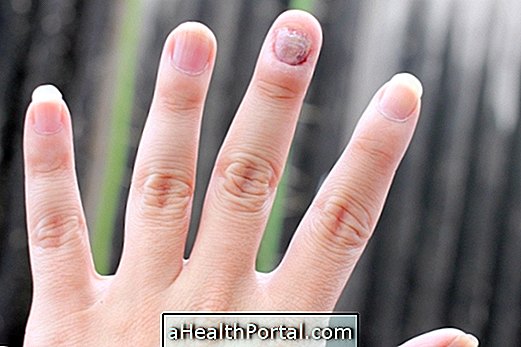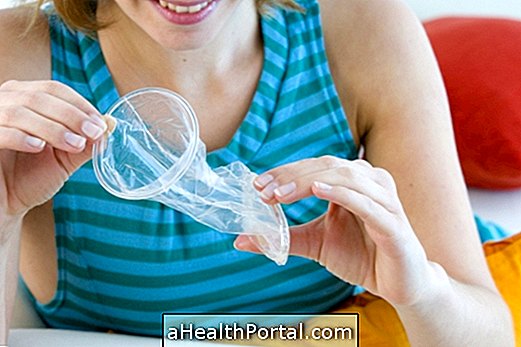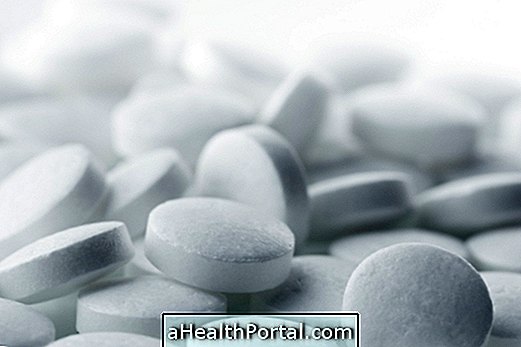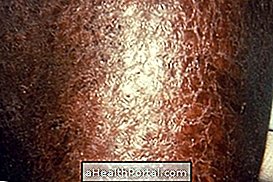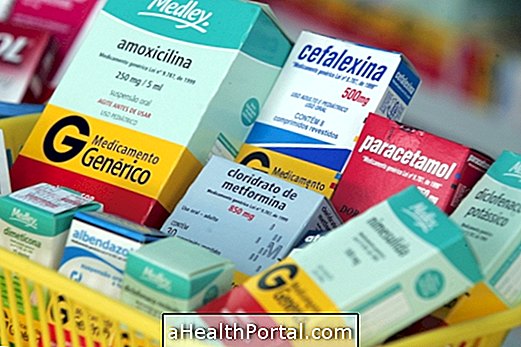Swelling in the penis is most often normal, especially when it occurs after intercourse or masturbation, but when accompanied by pain, local redness, itching, wounds or bleeding, it can be indicative of infections, allergic reaction or even fracture of the body.
If the penis swelling does not go away after a few minutes or comes with other symptoms, it is important to go to the urologist for the diagnosis to be made, and then initiate treatment if necessary.

What can be the swollen penis
Most of the times the swollen penis is normal, disappearing within a few minutes, possibly after intercourse or masturbation, due to increased blood flow in the organ.
1. Fracture
Fracture of the penis usually occurs during intercourse, usually when the woman is over the man and the penis escapes from the vagina. As the penis has no bone structure, the term fracture refers to the rupture of the membrane covering the corpora cavernosa, resulting in pain, immediate loss of erection, in addition to hematoma, bleeding and swelling.
What to do: If a penile fracture has occurred, it is recommended that the man go to the urologist for a fracture assessment to verify the need for surgical repair. Drug treatment is only done when the fracture is very small. It is also important to put ice in the area, avoid intercourse for up to 6 weeks, and take medications that inhibit nighttime involuntary erection. Learn more about penile fracture symptoms and treatment.
2. Balanite
The balanitis corresponds to the inflammation of the head of the penis, the glans, and when it also affects the foreskin, it is called balanoposthitis, which results in redness, itching, local heat and swelling. The balanitis is usually caused by yeast infection, most often Candida albicans, but may also be due to bacterial infections, allergic reaction or lack of hygiene, for example. Get to know other symptoms of balanitis and how the treatment is done.
What to do: Once signs and symptoms characteristic of infection are identified, it is important to go to the urologist or pediatrician for children to identify the cause and treatment initiated. The treatment can be done with the use of antifungal, if the cause is infection by fungi, or antibiotics, if it was caused by bacteria. In addition, it is important that men pay attention to intimate hygiene to prevent the proliferation of these infectious agents.
3. Genital Herpes
Genital herpes is a sexually transmitted disease that arises initially as small wounds or blisters in the male genital region, especially at the end of the penis, resulting in itching, pain and burning when urinating, discomfort and in some cases swelling. Here's how to identify the symptoms of genital herpes.
What to do: It is important to go to the urologist for the diagnosis and treatment to be started, which is usually done with the use of tablet or ointment antivirals. In addition, it is important to use condoms in all sex to avoid transmission of the disease. Learn how the treatment for genital herpes is done.

4. Urethritis
Urethritis refers to inflammation of the urethra by bacteria, such as Chlamydia trachomatis and Neisseria gonorrhoeae, which can result in swelling of the penis, especially at its extremity, in addition to itching, swelling of the testicles, difficulty in urinating and presence of discharge. Understand urethritis and how to treat it.
What to do: It is recommended that the man consult the urologist for treatment to begin, which is usually done with the use of the antibiotic Azithromycin, which should be used according to the medical recommendation.
5. Allergic reactions
Swelling in the penis can also happen due to the allergic reaction caused by a dirty underwear or different fabric, lubricants, soap and preservative, for example. In addition to the swelling, the allergy may be manifested by itching, redness or the presence of small red marbles on the head of the penis for example. Also know what the itching in the penis might be.
What to do: It is important to identify the cause of the allergy and avoid contact with the causative agent. It is also recommended to carry out proper hygiene of the intimate area, using appropriate soaps, and preferably cotton underwear.
How to prevent
The prevention of penile swelling can be made from the adoption of better hygiene habits, since most of the time it is about infections. In addition, it is important to use condoms during intercourse, to prevent the transmission or contraction of sexually transmitted diseases, and to use appropriate lubricants.
It is also important that the man preferably wear cotton underwear and go to the urologist as soon as he or she has noticed changes in the penis. See what the urologist does and when to consult.









